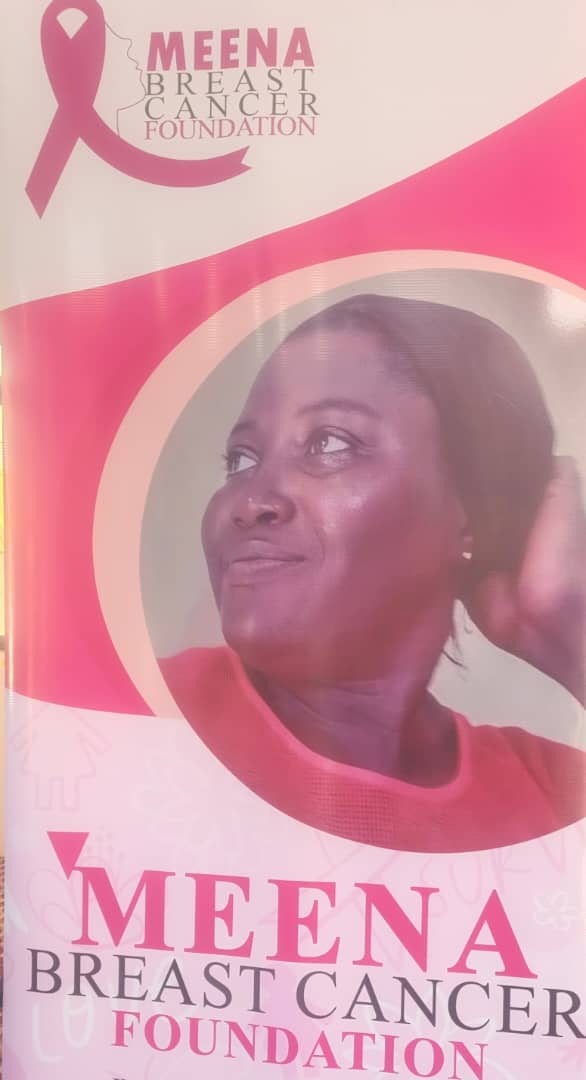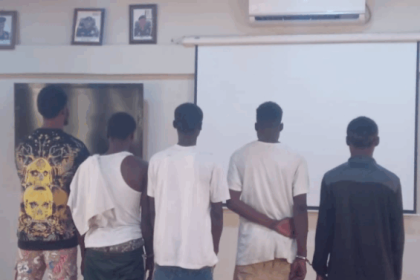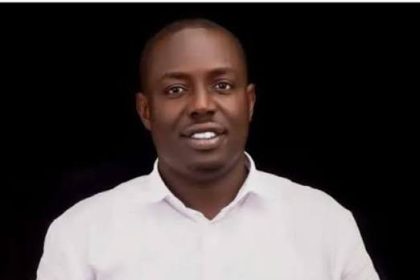The Meena Breast Cancer Foundation has urged the government to treat breast cancer as a national emergency, calling for intensified education, regular screening, and expanded support services to curb the disease’s growing toll across Ghana.
Mr. Ibrahim Oppong Kwarteng, Chief Executive Officer & Founder of Meena Breast Cancer Foundation, made the appeal during a free breast cancer education and screening exercise at the Amina Mosque in Crispus City, Kasoa, where some 500 women participated.
Speaking on the sidelines of the event, he told the Ghana News Agency that despite increased awareness, breast cancer cases continued to rise, revealing a deepening public health crisis that demands all-year-round attention.
“As you may be aware, breast cancer is on the increase in Ghana, and while there have been interventions, we still have a lot to do. Government must do more to curb the spread,” he said.
Mr. Kwarteng, who also doubles as Executive Director of Crime Check Foundation, founded the Meena Breast Cancer Foundation in memory of his late wife, Amina, who in June 2022 died of breast cancer in Turkey while undergoing radiotherapy.
“On her sickbed, she promised that if she survived, she would dedicate her life to sensitizing others. Sadly, she passed away, and that inspired me to fulfil her wish,” he said.
Since its inception on October 6, 2022, the Foundation has visited more than 100 secondary schools and communities nationwide to raise awareness and promote early detection.
“In every school, we find at least five to ten suspected cases, and sometimes as many as 30,” he said. “We liaise with the schools to contact parents and pay for chemotherapy or radiotherapy when families cannot afford treatment.”
Mr. Kwarteng described the findings as alarming, calling the situation a “national tragedy” that required urgent attention.
“If we were to conduct a national survey, the statistics would be harrowing. That is why I’m calling on government to treat breast cancer as a national tragedy and intensify education,” he stressed.
He also announced that the Foundation was constructing a breast cancer centre at Potsin in the Central Region to improve access to diagnosis and treatment.
“We are about 75 per cent complete. When done, it will have mammogram machines and other facilities so patients from the central belt will not have to travel to Accra for treatment,” he said. “Our aim is to provide free services to communities that cannot afford care.”
Mr. Kwarteng stated the tendency to limit breast cancer awareness campaigns to October was not the best way to go and that the campaign should run throughout the year.
“It is unfortunate that all education and screening activities are concentrated in October,” he said. “Breast cancer spreads all year round, so our education must also continue year-round. Limiting awareness to one month does the nation a great disservice.”
The Foundation continues to advocate policy reforms and collaborates with health and educational institutions to increase public education nationwide.
“We have been engaging schools, communities, and professional groups like the Ghana National Association of Teachers,” he said. “We believe that awareness must begin early because even young people are now being diagnosed.”
He urged the Ghana Health Service and the National Commission for Civic Education (NCCE) to join in mass sensitization efforts to help curb cancer spread.
“The NCCE should treat breast cancer as a national emergency just like HIV/AIDS in the past,” he said. “They have the structure and mandate to intensify community education across the country.”
Mr. Kwarteng also expressed concern about late diagnoses and missed detections, noting: “Sometimes women complain of discomfort, yet doctors find no lumps. Six months later, a large lump appears. It means we must do more research to understand these patterns and improve early detection.”
He encouraged both women and men to seek medical attention at the first sign of discomfort, cautioning: “Before a lump appears, the disease may have been hidden for four or five years. Don’t sit home, press your doctors for more tests if symptoms persist.”
He appealed to corporate Ghana, international health agencies, and philanthropists to support the Foundation’s awareness programmes and the completion of its breast cancer centre.
“We are a small organization, but we are determined to do more. We need partners to expand our reach,” he said. “Government must also lead by ensuring that every district has access to screening and treatment.”
Mr. Kwarteng noted that with this call for national unity in the fight against breast cancer, “We cannot win this fight alone. It must be a collective mission, government, civil society, and the international community working together to save lives.”
Mr. Erskine Ebenezer, Outreach Officer of the Meena Breast Cancer Foundation, took participants through breast cancer symptoms, prevention, and lifestyle risks.
He warned against excessive use of contraceptive pills, which he said could increase susceptibility to the disease.
“Ideally, one should not take more than two contraceptive pills in a year,” he cautioned. “The more you consume them, the higher your risk of developing breast cancer.”
He also urged women to be alert to signs such as nipple discharge, recurring rashes, and unusual changes in breast texture.
“When you see fluid discharge and you are not breastfeeding, please visit the hospital immediately,” he said. “Early detection saves lives.”
The outreach event drew dozens of women for free education and screening.
The initiative is part of a broader nationwide campaign by the Meena Breast Cancer Foundation to reduce stigma and misinformation surrounding breast cancer in Ghana.
GNA






